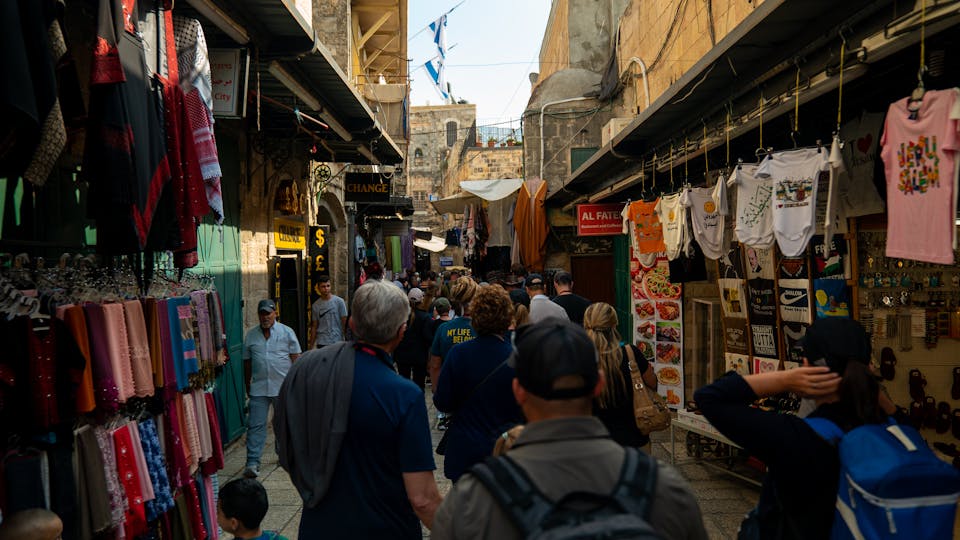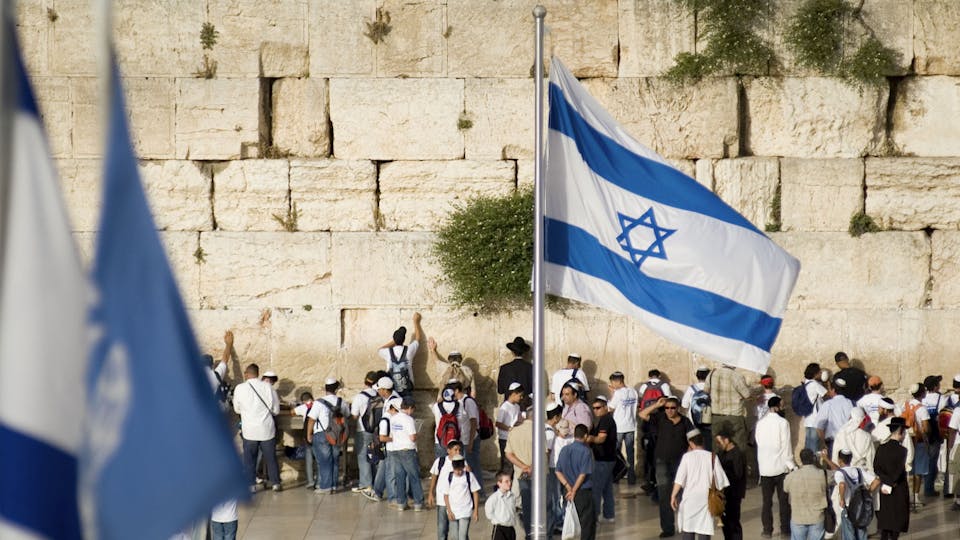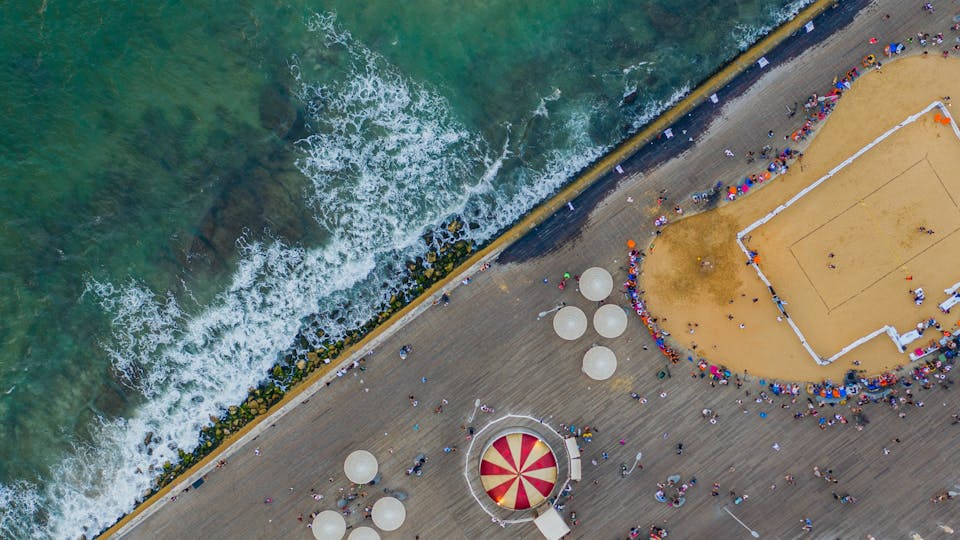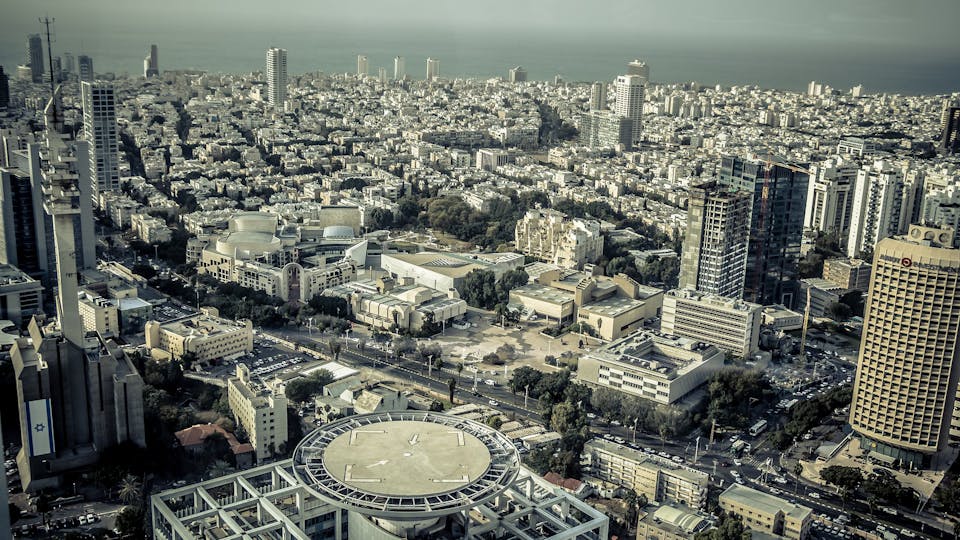Why Tourism in Israel Is Forecasted to Continue Its Rise after Covid-19

When COVID-19 first exploded, the global tourism industry struggled to comprehend the enormity of the problem at hand. But then, as international borders around the world slammed shut in mid-March 2020, the prospect of a prolonged industry-wide meltdown became terrifyingly real.
It’s impossible to understate the devastating effect this pandemic has had on the travel industry, nor is it possible to predict when the sector will land on its feet again. But as the world learns to live with coronavirus—whether through better testing, treatment, or an effective vaccine—the tourism industry will rise from the ashes again.
And Israel is poised to bounce back faster than any other country on earth.
While other nations will struggle to rebuild their tourism industries from the ground up, Israel is forecast to continue its meteoric growth during the post-COVID-era. Four key factors—religious importance, unprecedented growth, favorable geography, and a well-organized society—will see the country lure back international travelers in droves.

Religion in a Time of Crisis
Also known as the ‘Holy Land,’ Israel has been welcoming pilgrims since ancient times. And that shouldn’t come as a surprise—the nation is home to many of the most important sites of the three major monotheistic religions.
In fact, after a prolonged period of rapid tourism growth, 2020 marked the first time the ‘Land of the Bible’ stopped welcoming a deluge of pilgrims in over 1,600 years.
The key to Israel’s tourism success among people of faith is Jerusalem, an ancient city that dates back thousands of years. A slew of sacred sites from Christianity, Judaism, and Islam lie peppered throughout its cobblestoned streets, enchanting pilgrims from all three Abrahamic religions at once. Each religion has its own quarters in the old city to explore, complete with curious cultural influences plus several sacred synagogues, churches, and mosques.
For Christian travelers—who comprise the lion’s share of religious visitors—the big bucket-list hits are the Garden Tomb and the Stations of the Cross, the latter of which is where the devout can follow in the path of our Savior during His final days. The 14-step route finishes at the Church of the Holy Sepulchre, where the Romans crucified Jesus about two millennia ago.
Most Christians agree this fourth-century basilica is the most sacred site on earth; pilgrims flock here each day to experience the magic first hand. Other essential Christian attractions include the Church of Mary Magdalene, a Russian Orthodox temple with spellbinding murals from Sergei Ivanov, as well as the Mount of Olives, a revered peak and pilgrimage site that receives multiple mentions in the Bible.
Muslims consider Jerusalem to be the third most sacred city on earth, only after Mecca and Medina in neighboring Saudi Arabia. The town became the first focal point for Islamic prayer back in 610 AD. Most of the city’s holy Islamic sites reside within the hilltop compound known as Temple Mount, with Muslim pilgrims visiting the Dome of the Rock, and Al-Aqsa Mosque in droves.
Jerusalem has been the spiritual epicenter of Judaism since King Solomon founded the Holy Temple here in the 10th century BC. Jewish pilgrims worship at many of the same locations as the Christians and Muslims—the Temple Mount and the Western Wall, for example—and enjoy wandering the streets of the old Jewish Quarter on the other side of the Western Wall. Here, devout Orthodox Jews don traditional garb, while other denominations mingle side-by-side in its synagogues.
Although worshippers from the three major Abrahamic religions share many of the same sacred sites in Jerusalem, what they truly have in common is a deep passion for religion.
Even though travel trends may come and go over the years, Our Lord will continue to entice new arrivals into Israel—and that won’t change in the post-pandemic world.
Furthermore, difficult times tend to make believers even more devout, prompting them to grow stronger in faith to find the strength to overcome the challenges ahead. And once Israel opens its borders again to international visitors, the demand among people of faith to savor the most sacred places on earth is set to soar.
Yinon Ben Hod, the Marketing & Sales Director at Sar-El Tours, believes religion will be the crux of Israel’s tourism revival in the post-COVID era.
“For the Christian traveler, visiting Israel is more than just another vacation. Church groups coming to Israel are coming to explore the roots of their faith, a place where the Bible becomes alive. Talking with our travel partners daily, the question ‘when will the borders open’ keeps coming. Many groups are booked for the coming months, ready to travel once the situation allows.”
- Yinon Ben Hod, the Marketing & Sales Director at Sar-El Tours
Finally, and perhaps most importantly, although travel in the post-COVID-era will be fraught with difficulty, it’s the devout pilgrim visitors who will be most likely to take the risk and go. And that factor alone puts Israel in a position to thrive once the threat of the virus starts to fade.

Rapid Tourism Growth
Before COVID reared its ugly head, Israel experienced skyrocketing growth in the tourism sector, the likes of which it had never seen. The country boasted a year-on-year increase of at least 10% for the previous five years and was set to smash $1.5 billion in total revenue in 2020 with an annual growth rate of 21.9%.
The hotel sector scoffed down a large portion of the lucrative tourism pie; it was projected to gross US$898 million this year. Over 12 million domestic and foreign tourists stayed in Israeli hotels in 2019, a 4.7% increase on the year before and up 14.1% on 2017.
With a total average room occupancy rate of 69.5% in 2019, overbooked Israeli hotels were turning customers away even outside the busy seasons, especially in hot ticket destinations like Jerusalem, Tel Aviv, and Eilat. In response to the unprecedented boom, the construction industry worked on overdrive, opening thousands of new hotel rooms each year to meet the rapidly growing demand.
The aviation sector also enjoyed lightning-fast growth, with both local and international airlines putting on a plethora of new routes to service inbound travelers. Israel’s three major airlines, El Al, Israir, and Arkia, significantly enhanced their domestic and international routes, ultimately causing air traffic to increase by a whopping 7.5% in 2019.
Last year (2019), the enormous Eilat-Ramon Airport opened its doors to welcome low-cost carriers from Europe. The cashed-up European demographic was just beginning to notice this Red Sea resort town as a desirable seaside escape, and the savvy travel agent could easily combine a beach holiday with religious tours in Jerusalem to optimize commissions.
Of course, when COVID exploded and international borders closed, Israel’s meteoric rise came to a crashing halt—visitor numbers are down an eye-watering 97% on last year.
But once international borders reopen and things begin to settle down—which some travel industry pundits predict to occur in late 2020 or early 2021—then Israel is set to pick up where it left off.
Numerous factors put Israel in an advantageous position to grow in the post-COVID-era: intense religious importance, fascinating historical sites, strategic geographical location, improving international relations, technology and innovation, intriguing cultural traditions, and well-developed infrastructure.
Sharon Ehrlich Bershadsky, the Director of the Israeli Government Tourism Office in London, shares the same sentiment:
“Working in the tourism industry, one must always be optimistic. I come from Israel, a country that has experienced many challenges throughout the years and always comes out better on the other side.
- Sharon Ehrlich Bershadsky, Director of the Israeli Government Tourism Office in London

Effective mitigation processes in place
As a highly developed country with a sophisticated government, Israel is in a strong position to reopen its international tourism sector once an effective vaccine has been found. The country successfully reopened its domestic tourism industry back in May 2020 for a significant period, enacting a long list of requirements for a COVID-safe world.
Social distancing restrictions, hotel sterilization practices, and hygienic food distribution were just some of the new norms enforced by the Israeli Ministry of Tourism to slow the spread of the virus.
Sar-El Tours has taken COVID safety practices a step further by introducing a state of the art air filtration system into all its buses. The groundbreaking anti-viral technology is the brainchild of local startup Aura Air and has proven to be effective at eradicating viruses like COVID as well as bacteria and allergens.
Limiting the number of simultaneous visitors at any attraction and enforcing face mask use in indoor areas further helped Israel manage its domestic tourism industry throughout the pandemic.
Ultimately, as has occurred throughout the world, a second wave hit Israel and forced a series of fresh lockdowns throughout the state. And while the country may be currently reporting a high number of new daily cases, strict lockdown measures are tipped to bring these under control. In any case, even at the peak of the second wave, Israeli hospitals were far from being overrun. Therefore, Israel avoided the large-scale health crises that have plagued developed countries around the globe.
Widespread testing has also allowed Israel to tackle the pandemic head-on. The country currently administers as many as 55,000 tests per day, which equates to 372,325 per million residents—the highest rate in the world.
And although the second wave, which peaked in late September, was dire, recent statistics show how the newest lockdown is bringing the virus under control. Once the country opens up again, authorities will be eager to put the lessons learned from the previous reopening into practice.
Even once a vaccine has been deployed, strict travel restrictions will be required to control the spread of the disease worldwide. Vaccines are never 100% effective, so experts predict there will still be a need for rampant testing, social distancing, and hotel/transport sterilization. Israel has the knowledge and experience to enact these, thus putting the nation in a favorable position to recover quickly after COVID-19.
Roy Kreizman, a Consul at the Israeli Ministry of Tourism in China, is optimistic about Israel’s ability to recover:
“In recent years we've experienced breaking records within the incoming tourism movement to the State of Israel. In terms of arrivals, overnight stays and the satisfaction index we've reached stunning results. Therefore, I am fully confident that as soon as the pandemic would be over, the demand will return and the tourists will arrive in Israel quickly.
- Roy Kreizman, Consul at the Israeli Ministry of Tourism in China

A Warm Climate & Large Open Spaces
Israel is blessed with a warm climate and sparse landmass that will help mitigate the spread of the disease once international travel is back on the cards again.
While many countries cram tourists tightly together into crowded indoor attractions, Israel’s most popular destinations are out in the open air. And as for its sacred religious sites, plenty of pilgrims will be happy to admire their beauty from the outside. Alternatively, plans are already in place to allow visitors to pre-book a time to visit the interior of their favorite religious structure in a safe and socially distant manner.
One of Israel’s biggest drawcards for a quick post-covid recovery, however, are its vast and varied landscapes. The wide-open country boasts a whole host of jaw-dropping natural surroundings to explore, from endless sandy deserts to lush tree-clad hills. Hiking routes crisscross the region, offering intrepid outdoorsy types the chance to experience the nation’s beauty well away from potentially infectious crowds.
In recent years, the government has invested hundreds of millions of dollars in the Negev desert. Vast swathes of upgraded infrastructure will lure scores of tourists seeking a nature escape in a post-COVID world.
Furthermore, for much of the year, Israel’s hot and arid climate should help reduce infection rates; COVID is known to spread more easily in colder locales.

The Path to Normality
Although it’s impossible to predict when the global tourism industry will bounce back, we remain optimistic that things will pick up again soon, at least here in Israel. Our record pre-COVID growth, effective mitigation strategies, bucket-list religious sites, and sparse outdoor adventures put Israel in an enviable position to recover quickly from this mess.
As the General Manager at Sar-El Tours, Uri Avrouskine, puts it:
“Believers from all nations were prevented from visiting Israel for almost a year. Once this is possible again, they will return in their thousands to the Holy Land to experience a journey to the bottom of their faith, to pray and heal where it all began, and to gain spiritual strength and encouragement after a long era of COVID-19 despair.”